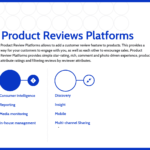Starting a successful blog requires a combination of creativity, dedication, and a willingness to learn and adapt. With the rise of digital media, blogging has become a popular way for individuals to share their thoughts, experiences, and expertise with a global audience. However, with so many blogs out there, it can be challenging to stand out and attract a loyal following. In this article, we will provide a step-by-step guide on how to start a successful blog, from zero to hero.
Step 1: Choose a Niche
The first step in starting a successful blog is to choose a niche. A niche is a specific topic or area of interest that you will focus on in your blog. It’s essential to choose a niche that you are passionate about and have some expertise in. This will help you to create high-quality content and attract a targeted audience.
When choosing a niche, consider the following factors:
* Your interests and expertise
* The demand for content in that niche
* The level of competition in that niche
* The potential for monetization
Some popular niches for beginners include:
* Lifestyle and wellness
* Technology and gadgets
* Travel and adventure
* Food and cooking
* Personal finance and budgeting
Step 2: Register a Domain Name
Once you have chosen a niche, the next step is to register a domain name. A domain name is the web address that people will use to access your blog. It’s essential to choose a domain name that is easy to remember, relevant to your niche, and available.
You can register a domain name through a registrar such as GoDaddy or Namecheap. Make sure to choose a registrar that offers a user-friendly interface and competitive pricing.
Step 3: Choose a Web Hosting Service
After registering a domain name, the next step is to choose a web hosting service. A web hosting service is a company that provides the technology and services necessary for your blog to be viewed on the internet. It’s essential to choose a web hosting service that offers reliable uptime, fast loading speeds, and good customer support.
Some popular web hosting services for beginners include:
* Bluehost
* HostGator
* SiteGround
* WordPress.com
Step 4: Install WordPress
WordPress is a popular content management system (CMS) that makes it easy to create and manage a blog. It’s free, open-source, and has a vast array of plugins and themes available.
To install WordPress, you will need to follow these steps:
* Log in to your web hosting service’s control panel
* Click on the “install WordPress” button
* Follow the prompts to complete the installation process
Step 5: Choose a Theme
A theme is a pre-designed template that determines the layout and design of your blog. It’s essential to choose a theme that is responsive, clean, and easy to navigate.
Some popular WordPress themes for beginners include:
* Twenty Nineteen
* Twenty Twenty
* Astra
* GeneratePress
Step 6: Customize Your Blog
Once you have installed WordPress and chosen a theme, the next step is to customize your blog. This includes adding a logo, changing the colors and fonts, and adding widgets and plugins.
Some popular plugins for beginners include:
* Yoast SEO
* Jetpack
* Akismet
* Contact Form 7
Step 7: Create High-Quality Content
High-quality content is the backbone of any successful blog. It’s essential to create content that is engaging, informative, and well-written.
Some tips for creating high-quality content include:
* Conducting thorough research
* Using a conversational tone
* Adding visuals and multimedia
* Optimizing for SEO
Step 8: Promote Your Blog
Promoting your blog is essential to attracting a loyal following. Some popular ways to promote your blog include:
* Social media marketing
* Email marketing
* Guest blogging
* Collaborations and partnerships
* Paid advertising
Step 9: Engage with Your Audience
Engaging with your audience is essential to building a loyal following. Some popular ways to engage with your audience include:
* Responding to comments and messages
* Creating a community or forum
* Hosting webinars and live events
* Offering free resources and downloads
Conclusion
Starting a successful blog requires a combination of creativity, dedication, and a willingness to learn and adapt. By following these steps, you can create a high-quality blog that attracts a loyal following. Remember to choose a niche you are passionate about, register a domain name, choose a web hosting service, install WordPress, choose a theme, customize your blog, create high-quality content, promote your blog, and engage with your audience.
FAQs
Q: What is the best way to choose a niche?
A: The best way to choose a niche is to choose one that you are passionate about and have some expertise in. Consider the demand for content in that niche, the level of competition, and the potential for monetization.
Q: How do I register a domain name?
A: You can register a domain name through a registrar such as GoDaddy or Namecheap. Make sure to choose a registrar that offers a user-friendly interface and competitive pricing.
Q: What is the best web hosting service for beginners?
A: Some popular web hosting services for beginners include Bluehost, HostGator, SiteGround, and WordPress.com. Look for a service that offers reliable uptime, fast loading speeds, and good customer support.
Q: How do I install WordPress?
A: To install WordPress, you will need to log in to your web hosting service’s control panel, click on the “install WordPress” button, and follow the prompts to complete the installation process.
Q: What is the best way to promote my blog?
A: Some popular ways to promote your blog include social media marketing, email marketing, guest blogging, collaborations and partnerships, and paid advertising. Experiment with different methods to find what works best for your blog.
Q: How do I engage with my audience?
A: Some popular ways to engage with your audience include responding to comments and messages, creating a community or forum, hosting webinars and live events, and offering free resources and downloads.









